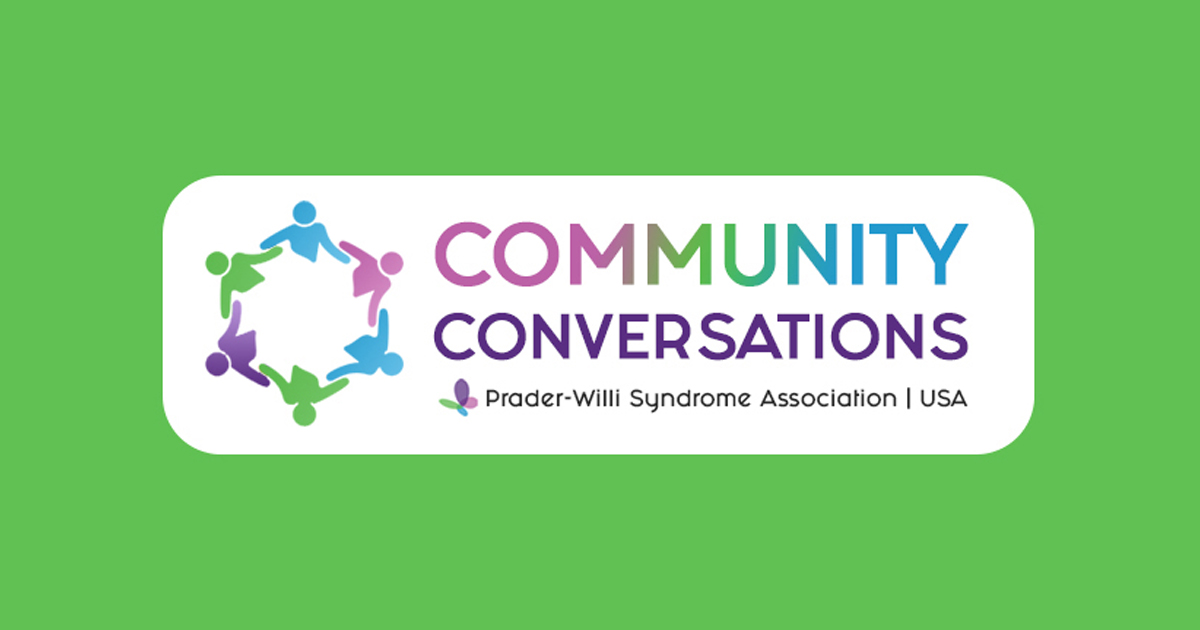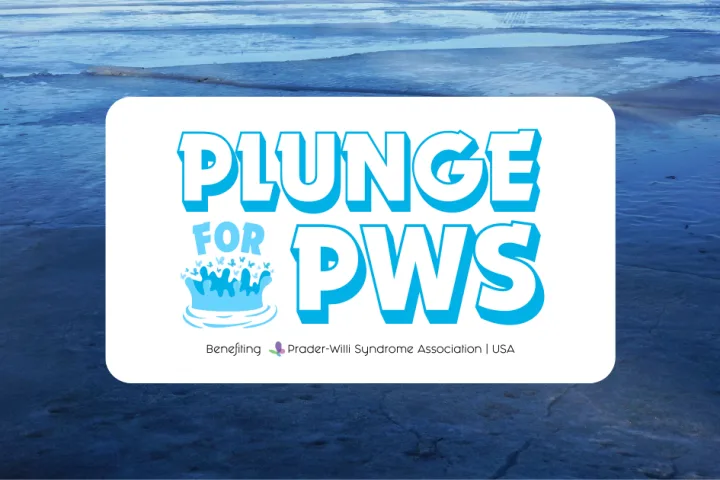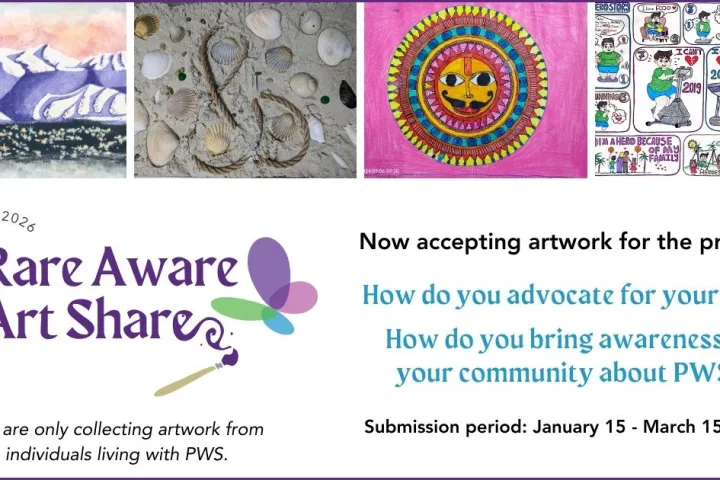January Community Conversation: Guardianship
Lisa Thornton is not only a parent of a young woman with PWS, but she is an attorney with a lot of experience navigating guardianship and special needs trusts. If, when, and how to apply for guardianship is often a daunting process for parents. Coupled with every state having different processes, parents are not always sure where to turn. Lisa shared why obtaining full guardianship is important and how Utah may differ from other states. For example, because of great advocacy, you no longer need an attorney in Utah when applying for guardianship. The courts have placed all the necessary paperwork online, hearings take place through WebEx, and the cost is $55. On average, the entire process takes less than two months! Other parents shared their experience with applying for guardianship in their respective states and none were as efficient or cost effective as Utah's process. Below are a few takeaways from the conversation:
- Start the process early so guardianship can be in place when your loved one turns 18.
- Rather than name “back-up” guardians, name co-guardians.
- Professional guardians are a good option for those who are concerned about transfer of guardianship when they no longer can provide that support.
February Community Conversation: Therapy Challenges
Abbie Olgilbee, mom to a child with PWS and Physical Therapist, joined us to answer questions related to therapy challenges. Therapy intensives are becoming more popular, and Abbie shared the pros and cons of participating in them. A notable positive is the rate at which individuals make progress during an intensive, while a notable negative or barrier for families is the cost involved. Some common questions were: Is it okay to take a break? Why does it seem like my child forgets skills they have learned? How can I work on the same things at home? How can I relay what my therapist learned in an intensive to their regular therapist? Abbie’s thoughts are below.
- It’s okay to take a break! Summers are a great time to take a break and explore. Children learn so much through natural exploration.
- Children often have a brain burst where they are making gains in one area, while seemingly regressing in others. This often lasts a couple of weeks and then the skills reemerge.
- Take pictures or videos of what the therapist is doing with your child so you can do it at home or share with your regular therapist.
PWSA | USA's next Community Conversation will be held March 15th at 8pm EST and will focus on sleep issues in PWS. Register in advance by clicking here. We hope to see you there!
Share this!





 Perry A. Zirkel has written more than 1,500 publications on various aspects of school law, with an emphasis on legal issues in special education. He writes a regular column for NAESP’s Principal magazine and NASP’s Communiqué newsletter, and he did so previously for Phi Delta Kappan and Teaching Exceptional Children.
Perry A. Zirkel has written more than 1,500 publications on various aspects of school law, with an emphasis on legal issues in special education. He writes a regular column for NAESP’s Principal magazine and NASP’s Communiqué newsletter, and he did so previously for Phi Delta Kappan and Teaching Exceptional Children. Jennifer Bolander has been serving as a Special Education Specialist for PWSA (USA) since October of 2015. She is a graduate of John Carroll University and lives in Ohio with her husband Brad and daughters Kate (17), and Sophia (13) who was born with PWS.
Jennifer Bolander has been serving as a Special Education Specialist for PWSA (USA) since October of 2015. She is a graduate of John Carroll University and lives in Ohio with her husband Brad and daughters Kate (17), and Sophia (13) who was born with PWS. Dr. Amy McTighe is the PWS Program Manager and Inpatient Teacher at the Center for Prader-Willi Syndrome at the Children’s Institute of Pittsburgh. She graduated from Duquesne University receiving her Bachelor’s and Master’s degree in Education with a focus on elementary education, special education, and language arts.
Dr. Amy McTighe is the PWS Program Manager and Inpatient Teacher at the Center for Prader-Willi Syndrome at the Children’s Institute of Pittsburgh. She graduated from Duquesne University receiving her Bachelor’s and Master’s degree in Education with a focus on elementary education, special education, and language arts. Evan has worked with the Prader-Willi Syndrome Association (USA) since 2007 primarily as a Crisis Intervention and Family Support Counselor. Evans works with parents and schools to foster strong collaborative relationships and appropriate educational environments for students with PWS.
Evan has worked with the Prader-Willi Syndrome Association (USA) since 2007 primarily as a Crisis Intervention and Family Support Counselor. Evans works with parents and schools to foster strong collaborative relationships and appropriate educational environments for students with PWS. Staci Zimmerman works for Prader-Willi Syndrome Association of Colorado as an Individualized Education Program (IEP) consultant. Staci collaborates with the PWS multi-disciplinary clinic at the Children’s Hospital in Denver supporting families and school districts around the United States with their child’s Individual Educational Plan.
Staci Zimmerman works for Prader-Willi Syndrome Association of Colorado as an Individualized Education Program (IEP) consultant. Staci collaborates with the PWS multi-disciplinary clinic at the Children’s Hospital in Denver supporting families and school districts around the United States with their child’s Individual Educational Plan. Founded in 2001, SDLC is a non-profit legal services organization dedicated to protecting and advancing the legal rights of people with disabilities throughout the South. It partners with the Southern Poverty Law Center, Protection and Advocacy (P&A) programs, Legal Services Corporations (LSC) and disability organizations on major, systemic disability rights issues involving the Individuals with Disabilities Education Act (IDEA), Americans with Disabilities Act (ADA), and the federal Medicaid Act. Recently in November 2014, Jim retired.
Founded in 2001, SDLC is a non-profit legal services organization dedicated to protecting and advancing the legal rights of people with disabilities throughout the South. It partners with the Southern Poverty Law Center, Protection and Advocacy (P&A) programs, Legal Services Corporations (LSC) and disability organizations on major, systemic disability rights issues involving the Individuals with Disabilities Education Act (IDEA), Americans with Disabilities Act (ADA), and the federal Medicaid Act. Recently in November 2014, Jim retired.